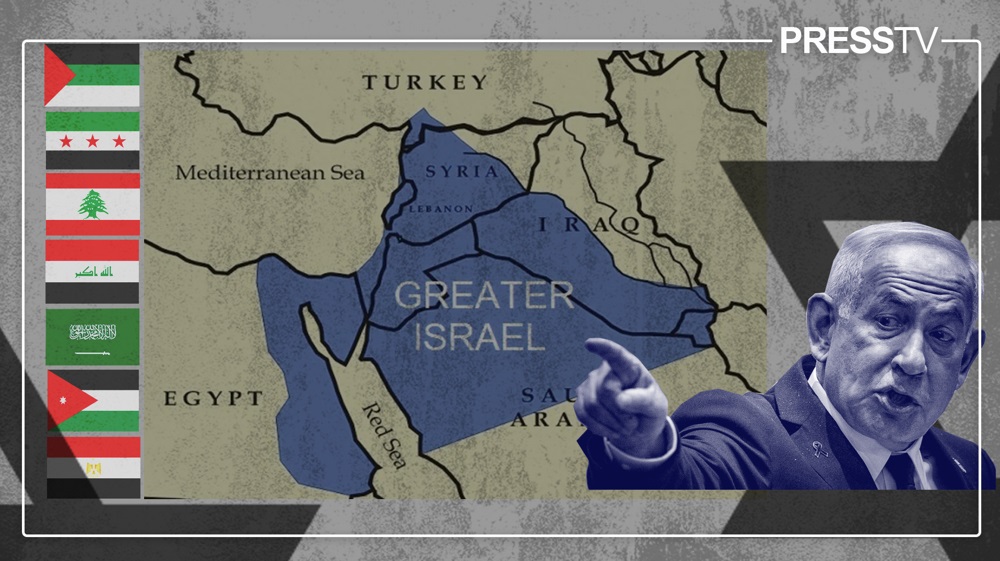 In a recent TV interview, Israeli Prime Minister Benjamin Netanyahu declared that he “very much” subscribes to the vision of a “Greater Israel,” as he gleefully accepted an amulet depicting the “Promised Land”.
In a recent TV interview, Israeli Prime Minister Benjamin Netanyahu declared that he “very much” subscribes to the vision of a “Greater Israel,” as he gleefully accepted an amulet depicting the “Promised Land”.
Only a Path to a Palestinian State can stop calamity in Gaza — and the World must lead the way, Ami Ayalon, a former Commander of the Israeli navy, former Director of Israel’s internal security agency, the Shin Bet, stresses at ‘The Foreign Affairs’.
Two events have reshaped the strategic landscape of the Middle East in the twenty-first century: the Arab Spring and the October 7 attacks. The Arab Spring, which began in late 2010, radically altered the internal dynamics of many Middle Eastern regimes. It empowered street movements and weakened autocrats’ traditional legitimacy, forcing even the most authoritarian leaders to become more responsive to their publics’ sentiment. Israeli and U.S. leaders should have understood that, in the long run, the Arab Spring would influence how a variety of regional actors responded to the Israeli-Palestinian conflict. The Palestinian cause has long served as a unifying banner for otherwise disparate actors—Sunnis and Shiites, Arabs and Persians, Islamists and nationalists. It provided ideological glue for Iran’s “ring of fire”: Hezbollah in Lebanon, Hamas in Gaza, the Houthis in Yemen, and Shiite militias in Iraq and Syria. These groups have often been at odds, but the cause of Palestine has served as a rallying point and a source of legitimacy in the wider Muslim world.
Ignoring this reality was a critical error by regional and global policymakers alike.
Hard Fork
Following its unprecedented military successes, Israel now stands at a historic T-junction. One path — the one Israel is now on — will lead the country toward the erosion of its current peace treaties with Egypt and Jordan, the deepening of internal polarization, and international isolation. It will encourage further radicalization across the region, more religious-nationalist violence from global jihadist organizations that feed on chaos, a decline in support among U.S. policymakers and American citizens, and an increase in antisemitism worldwide. To choose the other path — one that enhances security for Israelis and Palestinians alike and fosters stability and prosperity across the Middle East — Israel must head toward a regional agreement that includes a viable two-state solution.
This war is part of a persistent, deep-rooted struggle over identity, history, and belonging. It is a conflict shaped by asymmetric power but symmetrical fear.
The 2002 Arab Peace Initiative, introduced by Saudi Arabia and endorsed by the Arab League, remains the most comprehensive and underutilized framework for resolution. Unlike previous diplomatic efforts, it had two critical elements: a clear end goal — two states on the basis of the 1967 borders with agreed land swaps — and full regional participation in the negotiating process. It represented an inversion of the Arab League’s 1967 Khartoum declaration, transforming that statement’s infamous “three no’s” — no peace, no recognition, no negotiations — into a collective regional yes.
Successive Israeli governments ignored this proposal. But for Israelis, the initiative could now be understood as a strategic victory: the culmination of decades of diplomatic and military effort that resulted in broad Arab recognition of the Jewish state’s right to exist.
Preach Beyond The Choir
Regrettably, the current Israeli government has demonstrated that it actively opposes a Palestinian state. So the time has come for international actors to move forward on a realistic, staged process inspired by the Arab Peace Initiative as well as the Egyptian and more recent French-Saudi proposals. The broadest possible group of countries, including United States, Saudi Arabia, and moderate Arab states, must issue a joint declaration: the goal is two sovereign states, Israel and Palestine, living side by side in peace and mutual recognition. The clarity provided by such a statement can break through the fog of mistrust between Israelis and Palestinians and allow both to imagine a future worth striving for.
The first practical step is to secure a cease-fire in Gaza and the release of all the remaining Israeli hostages. An interim, technocratic Palestinian government under U.S.-Saudi oversight could handle civil affairs in Gaza, while a regional Arab security force, potentially under an Arab League or multilateral mandate, could maintain order. Saudi Arabia and the United Arab Emirates, along with major international organizations, could lead the large-scale reconstruction of Gaza. Hamas can gradually be disarmed by Palestinian Authority forces with regional support.
Within 18 to 24 months of a cease-fire, internationally supervised elections should be held in the West Bank and Gaza, with the aim of creating a legitimate, unified Palestinian government capable of representing its people in final-status negotiations. Anchored in the Arab Peace Initiative, guided by existing UN resolutions, and conducted with robust international mediation, a final agreement would set permanent borders, involving land swaps based on security, demography, and territorial continuity. It would also establish security arrangements, negotiate solutions for Israelis wishing to reside in Palestine and Palestinians seeking to live in Israel, decide the status of Palestinian refugees and of Jerusalem, and affirm mutual recognition.
…Israel’s military deterrence has been restored. It has shown the capacity to defend itself and to deter its enemies. But force alone cannot dismantle Iran’s proxy network and deliver Israel lasting peace and security for its future generations. Only a regional agreement with strong international backing that ultimately yields a viable two-state solution can preserve Israel’s security and Jewish-democratic identity, end the cycle of violence, and transform the Middle East from a battlefield into a zone of cooperation. This is not utopian idealism. It is in the interest of regional and international actors. And for Israel, it has become a strategic necessity.
read more in our Telegram-channel https://t.me/The_International_Affairs

 9:37 16.09.2025 •
9:37 16.09.2025 •






















